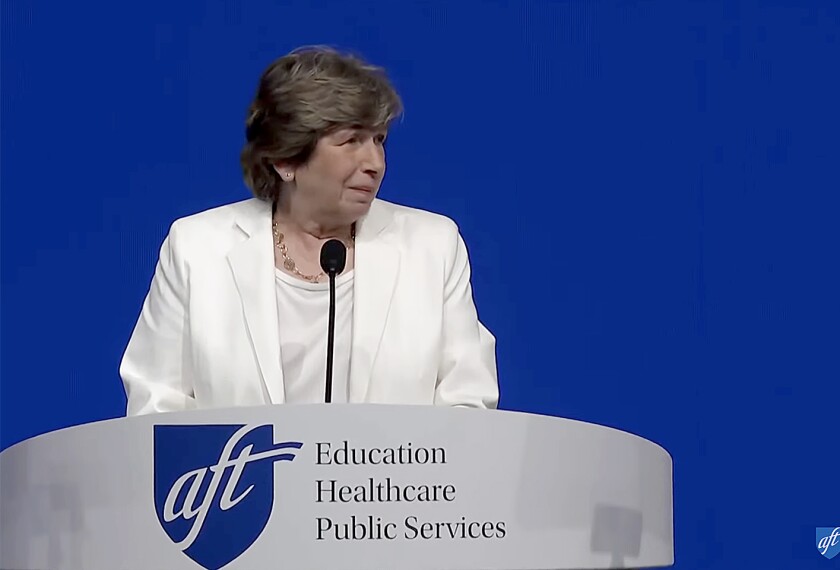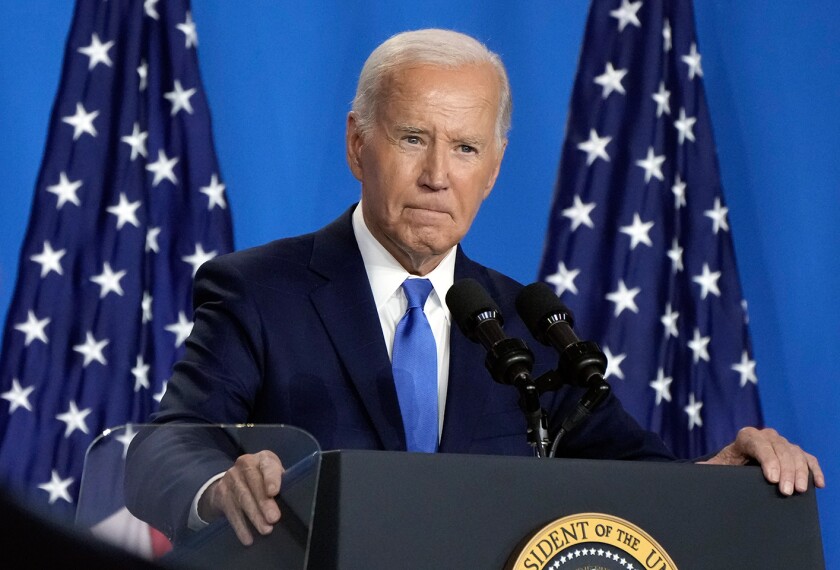Advocates for broadening the curriculum hope a draft House proposal for reauthorization of the No Child Left Behind Act will give a boost to history, art, music, and other subjects that they believe have been marginalized in many districts under the 5½-year-old federal law.
The draft of changes to Part A of the Title I program, released by Rep. George Miller, D-Calif., Rep. Howard P. “Buck” McKeon, RCalif., and key colleagues late last month, features potential incentives for states to test students in core subjects other than those now required—mathematics, reading, and, beginning this school year, science.
“It’s a good start … and encouraging that Congressmen Miller and McKeon are showing sensitivity to the criticism that there has been a narrowing of the curriculum” under No Child Left Behind, said Jack Jennings, the president of the Center on Education Policy, and a former aide to House Democrats. “If school districts can include testing in other subjects [in gauging how well their schools are doing], it allows them to pay more attention to those other areas.”
For more on this topic, read our blog, NCLB: Act II.
A report released in July by the CEP, a research and advocacy organization based in Washington, found that most districts have significantly increased instructional time in reading and math in the hope of improving student achievement and helping schools meet goals for adequate yearly progress, or AYP, under the federal law. The law requires testing in those two subjects annually in grades 3-8 and once during high school.
As a result of that emphasis, nearly half the nation’s school districts pared down instructional time in other critical subjects by more than two hours each week, according to the report. (“Survey: Subjects Trimmed To Boost Math and Reading,” Aug. 1, 2007.)
Other surveys and reports have confirmed that trend.
Grants and Measures
Read the accompanying story,
The preliminary House Education and Labor Committee plan would allow states to include student scores from state tests in history and other subjects as additional measures of how schools were performing. Those test scores would be given a fraction of the weight of math and reading results in determining AYP. The use of multiple measures would give states more information on school performance, said Mr. Miller, the chairman of the committee, whose ranking Republican is Mr. McKeon.
“We address the question that’s been raised, … whether NCLB is driving the narrowing of curriculum by school districts responding [to the law] simply by teaching to the test,” Mr. Miller said in a conference call with reporters last week. “Instead of using one multiple-choice test on one day,” he said, “we ought to allow schools to provide additional information that would give a more comprehensive and accurate picture of how schools are doing.”
The discussion draft also proposes a grant program for districts to strengthen instruction in “music and arts, foreign languages, civics and government, economics, history, geography, and physical education and health as an integral part of the elementary and secondary school curriculum.” It does not specify funding levels or say how many grants would be available.
According to Martin West, a professor of education at Brown University in Providence, R.I., who has studied the impact of the NCLB law and state tests on the school curriculum, the prospective grants would likely be less of an inducement to enhancing state testing programs than the multiple-measures provision.
“The testing proposal is potentially important to states that might want to consider testing in other subjects,” he said, “because doing so under the current NCLB creates a divergence between the state system and federal system.” The Miller-McKeon draft plan “would remove an important disincentive,” Mr.West said.
Some educators said they were encouraged by the plan.
“The notion that only very practical training equips you to deal with life and the world that we live in goes against every educational tradition for thousands of years,” said Theodore K. Rabb, a professor emeritus of world history at Princeton University and board chairman of the National Council for History Education, in Westlake, Ohio. Mr. Rabb asked the council’s membership this past summer to write Congress about their concerns over reductions in history education.
“This proposal is the most encouraging single thing that has happened lately,” he said, “that [lawmakers] are beginning to realize that there is a problem.”




